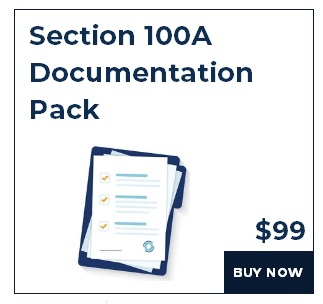
Birchstone Insights
FCT v Prestige Motors Pty Ltd [1998] FCA 221
This week we consider what is regarded as the leading case on section 100A: FCT v Prestige Motors Pty Ltd.
This matter involved a complex series of transactions which can be split into the ‘RLAV arrangement‘ and the ‘NMLA arrangement‘:
RLAV arrangement
- Prestige Motors Pty Ltd (Prestige Motors) sold its profitable business to a unit trust (Unit Trust);
- 93% of the units in the Unit Trust were owned by Ronald Lyons Australia (Vic) Pty Ltd (RLAV);
- RLAV had significant losses and came under control of the controllers of Prestige Motors prior to the allotment of units by the Unit Trust;
- Prestige Motors became the trustee of the Unit Trust;
- the Unit Trust, RLAV and Prestige Motors arranged for loans to be made to RLAV by Cholmondeley (a newly formed Singaporean company, the directors of which would act in the interests of the parties who arranged the loan);
- the Unit Trust distributed profits to RLAV to be offset against its losses; and
- interest payments were made by RLAV to Cholmondeley, with only 10% interest withholding tax payable on these amounts.
NMLA arrangement
- The Unit Trust issued units to a tax-exempt entity, National Mutual Life Association Ltd (NMLA);
- the deed of the Unit Trust was varied to allow income distributions to NMLA; and
- the deed of the Unit Trust was amended to divert capital benefits to other beneficiaries.
Findings
The Court held that the RLVA arrangement and NMLA arrangement both separately constituted reimbursement agreements under section 100A.
In relation to the RLAV arrangement, the Court said that the elaborate documentation and series of steps outlined reflected an understanding or arrangement to which a number of companies and persons were parties. Further, in relation to the requirement under section 100A(7) for there to be a payment of money or transfer of property, it was said that:
…it would seem that a number of payments or transfers answer the statutory description. Most obviously, the reimbursement agreement contemplated that the parties to it intended that RLAV (the beneficiary that became presently entitled to income) would pay very large amounts of interest to Cholmondeley.
The Court also held that it was not necessary for the Unit Trust to be in existence at the time that a reimbursement agreement was entered, and that there was no commercial motivation for the sale of the business.
In relation to the NMLA arrangement, the Court said that the issue of units to NMLA and the subsequent dealings were the product of an antecedent agreement or arrangement, with the effect of the agreement being that the future distribution of the bulk of the Unit Trust’s income was made to NMLA rather than RLAV. The Court held that no commercial reason for raising capital outside the Perron group was demonstrated.
While the arrangements described above were complicated, it is quite easy to see that the arrangements “crossed the line”, giving us little general guidance on where that line does sit. However, one finding of the Full Federal Court in this case that is of some general application was that a reimbursement agreement does not need to be legally enforceable for section 100A to apply to agreement.
Next week we will continue our section 100A journey with a look at the Federal Court decision in Idlecroft Pty Ltd v Commissioner of Taxation [2005] FCAFC 141.
ATO Update
ATO Guidance: Superannuation contribution caps
The ATO has released a fact sheet which explains the impact on your concessional and/or non-concessional super contribution caps where an amount of compensation is received by your super fund and allocated to your account.
Class Ruling
The ATO has issued Class Ruling CR 2021/56 which sets out the income tax consequences for employees of Aristocrat Leisure Limited who participate in the Aristocrat Leisure Limited Non-Executive Director Rights Plan.
ATO guidance finalised: Employee travel expenses
The ATO has issued Taxation Ruling TR 2021/4 which sets out:
- when an employee can deduct accommodation and food and drink expenses when they are travelling on work;
- the fringe benefits tax implications where an employee is reimbursed for accommodation and food and drink expenses; and
- the criteria for determining whether an allowance is a travel allowance or a living-away-from-home allowance benefit.
This Ruling finalises the draft ruling TR 2021/D1 (first covered in the Birchstone Brief for the week ended 19 February).
The ATO has also issued PCG 2021/3 which outlines the ATO’s compliance to determining if employees in certain circumstances are travelling on work or living at a location away from their normal residence. This Guidelines finalises draft PCG 2021/D1 (first covered in the Birchstone Brief for the week ended 19 February).
State Taxes
Payroll tax (NSW): Maternity, adoption and paternity leave
Revenue NSW has issued Ruling PTA 012B which explains the application of the exemption for maternity, adoption and paternity leave pay for payroll tax purposes.
Payroll tax (Qld): Ruling issued
Queensland Treasury has issued Public Ruling PTAQ014A.3.1 which explains the application of the exemption for maternity and paternity leave (collectively, parental leave), adoption leave, surrogacy leave or cultural parent leave.
Cases
Appeals
The High Court of Australia has refused to grant the taxpayer special leave to appeal from the decision of the Full Federal Court in FCT v Auctus Resources Pty Ltd [2021] FCAFC 39 (covered in the Birchstone Brief for the week ended 26 March). In that case, it was held that the Commissioner could rely on section 8AAZN of the Taxation Administration Act 1953 (Cth) to recover an amount relating to an R&D tax offset.
Legislation
Legislative Instrument: GST-free supplies of Cars for Disabled Peoples
A Legislative Instrument has been registered to ensure that disabled people have continued access to GST-free supplies of cars.
Treasury Laws Amendment (2021 Measures No.6) Bill 2021 – Bill introduced into Parliament
The Bill which:
- makes refunds of large-scale generation shortfall charges non-assessable non-exempt income;
- removes the requirements for actuarial certifications when calculating exempt current pension income for members of superannuation funds that are in retirement phase for the whole year; and
- improves the identification of superannuation assets in family law proceedings,
has been introduced into Parliament.
Treasury Laws Amendment (COVID-19 Economic Response No. 2) Bill 2021 – Bill receives assent
The Bill which makes certain COVID-19 disaster and business support payments non-assessable non-exempt income has received assent and is now law.

